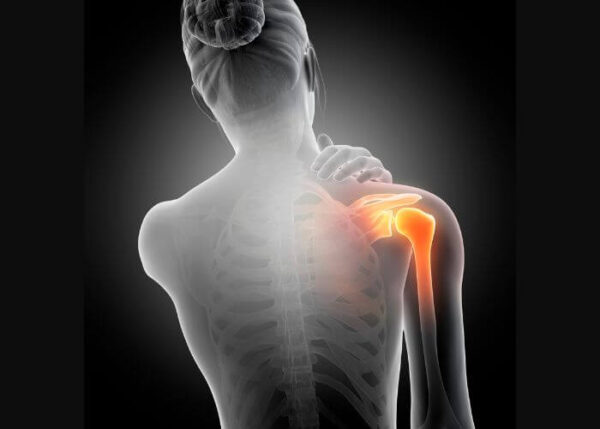How Stem Cell Therapy can be an Effective Alternative to Shoulder Replacement
As the most mobile joint in the human body, the shoulder is placed under a great amount of stress each and every day. Active individuals, athletes and the older population often struggle with the painful symptoms of osteoarthritis caused by continuous wear and tear of the shoulder joint. In many cases, osteoarthritis progresses until non-surgical treatments are no longer effective. Countless individuals in the Denver, Vail and Aspen, Colorado area are then told a shoulder replacement is necessary. For individuals who are looking for an alternative to shoulder replacement, Dr. Matthew Provencher may recommend stem cell therapy for the shoulder.
What is Shoulder Osteoarthritis?
Osteoarthritis of the shoulder joint is caused by the gradual degeneration of articular cartilage. Articular cartilage is the white, smooth substance that covers the ends of each shoulder bone and plays an important role in providing a pain-free gliding motion when the joint is in movement.
Over time, an individual’s bones may begin to rub against each other as the cartilage continues to break down. This often leads to complete cartilage loss and the development of bone spurs that causes chronic joint pain, inflammation and stiffness.

A New Alternative to Shoulder Replacement
Dr. Provencher often begins osteoarthritis treatment with non-surgical measures such as rest, modified activities, medications, cortisone injections and physical therapy. Unfortunately, shoulder osteoarthritis is a progressive joint condition that cannot always be controlled with conservative measures.
Stem cell therapy for the shoulder is continuing to gain support as an effective alternative to shoulder replacement in the orthopedic field. Multiple clinical studies have been conducted, as well as ongoing, to determine the efficacy of stem cell therapy in the management of progressive shoulder osteoarthritis.
What is Stem Cell Therapy for the Shoulder?
Adult ‘autologous’ stem cells have natural healing abilities within multiple types of tissue found in the human body, as well as the ability to modulate the inflammatory process. Young, active patients who have exhausted conservative treatments and are searching for an alternative to shoulder replacement may be ideal candidates for stem cell therapy for the shoulder. This form of regenerative medicine is considered a safe and effective treatment that does not involve the ethical concerns associated with fetal stem cells since adult stem cells are harvested directly from the patient’s body.
Dr. Provencher begins stem cell therapy for the shoulder joint by extracting a small sample of bone marrow from the patient, commonly from the back of the pelvis. Once the bone marrow is harvested, it is spun in a special machine to separate a combination of white blood cells, adult stem cells and platelets. This healing combination is then injected directly into the shoulder impacted by osteoarthritis to accelerate healing and regenerate articular cartilage.
To learn more about the affects of biologics in sports medicine, please visit the biologic research section of our website: Biologic Research.
If you live in the Denver, Vail and Aspen, Colorado communities and would like additional resources on stem cell therapy for the shoulder, or would like to determine if you are an ideal candidate for this alternative to shoulder replacement, please contact the orthopedic office of Dr. Matthew Provencher for full treatment details.
Biologic Therapy FAQ
- How do BMC stem cell injections, platelet rich plasma (PRP) injections and amniotic fluid-derived allografts accelerate the healing process of orthopedic injuries?
- Are BMC stem cell injections, platelet rich plasma (PRP) and allografts all considered regenerative therapies?
- Why is bone marrow concentrate (BMC) called a stem cell “like” therapy?
- Is there an age limit for BMC stem cell injections?
- Do all platelet rich plasma (PRP) and bone marrow concentrate (BMC) stem cell therapies provide the same healing and regeneration benefits?
- Why doesn’t my insurance cover this treatment?
See all biologic articles: Biologic Studies